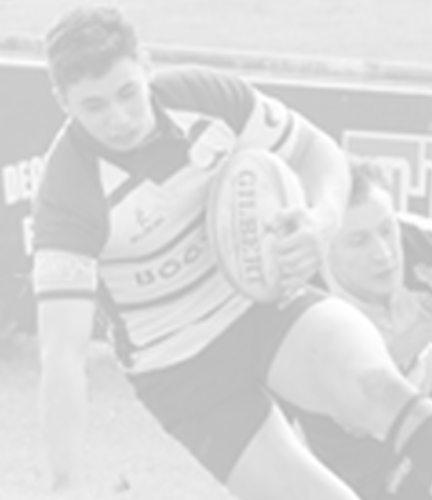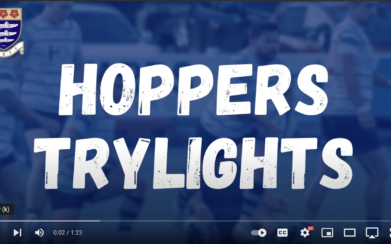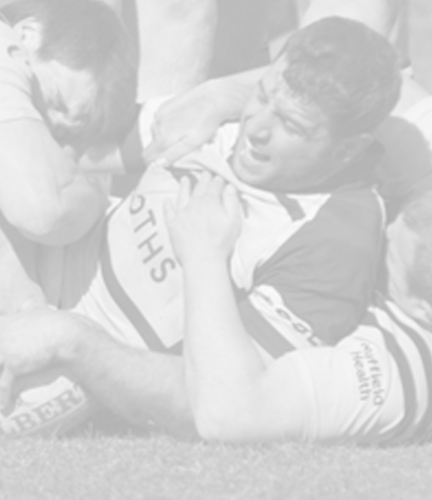Round four of this season’s Six Nations was yet another compelling weekend rounded off by a superb English win in Paris. Three wins away from home in a season is an excellent effort and should strengthen Stuart Lancaster’s case to become full time Head Coach. Following the weekend’s results, Wales are all but champions but know that their ability to now win the Grand Slam is the true barometer of their season whilst Scotland and Italy will again go head to head in their now (almost) annual Wooden Spoon decider.
I’ll start my review in Cardiff. Wales got the job done but will rightly be frustrated with their inability to put more points on the board. Italy defended heroically for the full 80 minutes which is to their credit but again offered little or nothing in terms of attack. Wales suffered no new injury problems whilst Italy will take some confidence from their ability to subdue the home side. I felt there were other forces at work in this game which in truth were evident across all three matches and I will comment on the performance of the merry whistle blowers later in this piece.
Ireland came out on top in Dublin against a ragged Scottish XV who imploded on the back of a woeful second half performance. Ireland scored three excellent first half tries. One from a lineout move, another from a scrum half sniping run and some woeful defence with the crucial score on half time resulting from Scottish ineptitude in clearing their lines. Thus the question marks about the potency of the Irish midfield with the missing O Driscoll remain. Kidney’s substitution of D’Arcy to shift Sexton to inside centre probably hinted that he too is getting a little bit concerned. O Mahoney did add some balance to the back row but it would be surprise if the fit again O’Brien was not restored to the starting line up for England. Scotland, well what is there to say? Again Richie Gray was outstanding. The Scottish pack was competitive but I feel Andy Robinson must take some blame for this defeat. His substitutions were poorly timed and robbed his team of any cohesion in the second period. The Scottish midfield was non existent in attack and some of the decision making was at best naive. The Scots are desperate to uncover some class in the centre or just any player that has that little bit of magic in the 9, 10, 12, 13 positions. Until they do unearth a real game breaker or two then their limited carrying and kick & chase game is likely to be the best they can offer.
In Paris, we saw evidence that this England XV is moving in the right direction. Having weathered the early French storm they scored two excellent tries with the electric Ben Morgan having a major influence. Farrell again led England well tactically and the outside backs looked more threatening. Tom Croft (despite some disparaging comments about the previous week’s opposition in the build up to this game) did his talking on the pitch and probably had his best game for England in some time. His try came at an important time as England seemed to be faultering on the back of the wrath on Monsieur Rolland. They deserved to win but could have lost the game due to their high penalty count (seven conceded in their own half) and a late missed drop goal which any international fly half worth his salt should have nailed. If it had gone over then it would have been rough on England who were clearly the better side for most of the game.
Les Bleus continue to frustrate and disappoint. Saint Andre’s teams have always adopted a low risk territorial game based on the biggest pack of forwards available and a kicking fly half. His Sale and Toulon teams were safety first teams who played no frills rugby until they had established camp in the opposition half. From there they would hunt the mistake or be a little bit more expansive. This may work in club rugby where a large budget allows you to recruit the biggest specimens around but seldom works on the level playing field of international rugby. It is noticeable that in their last three games, France have played their best rugby when behind on the scoreboard and needing to play more with ball in hand. Saint Andre must also answer why he substituted Beauxis for Trinh-Duc on 76 minutes when it was likely that the game would come down to a drop goal or penalty. Beauxis is by far the more competent kicker with the greater range so for him to be taken from the field (why not move to full back as has been the case previously) was poorly thought out.
Finally it would be remiss of me not to discuss the standard of refereeing that was on display at the weekend. I think it is fair to say that all three officials were far too noticeable in their handling of the games. Alain Rolland is not my most favourite official and I think his almost “over officiousness” needs tempering. His lack of consistency over the yellow cards for deliberate knock ons was baffling as was the constant need to reaffirm himself as the man in charge of proceedings. The game lost momentum for around 15 minutes during the second half for no other reason than M. Rolland felt the need to stop play every two minutes to engage in a running conversation with both teams about who was in possession of the whistle. His approach varies from the “letter of the law” to the “let it go” which is an infuriatingly inconsistent influence on games.
In Cardiff, Mr. Clancy penalised the side in possession 12 times at the breakdown (Wales 7 to Italy’s 5). Whilst those spectators who want the “letter of the law” approach to be applied may applaud, personally I think this demonstrated a complete lack of empathy for the game. Mr. Clancy’s major bugbear was support players going off their feet in support at the breakdown. Fine, this is in the laws and is there to be penalised. However no such zero tolerance was applied to removing the tackler intent on slowing down possession. But if we are going to apply the law book to the letter then the game of Rugby Union as a spectator sport is dead. On several occasions the whistle was blown when it was clear that no defending player was being prevented from competing for the ball despite attaching players going to ground. In the modern game defences are well organised and space is minimal. If referees are going to favour defending teams in such terms as Mr. Clancy did on Saturday then we will see even less attacking intent as teams adopt prescriptive safety first tactics based around the boot.
In Dublin it was the shambles of the scrum which was the problem with a whole 20 minutes of the game being used up on resets. Whilst there is sympathy for refs in dealing with scrums, it did beg the question that if the players were the problem then surely yellow cards should have been in use. The current crouch, touch, pause, engage system may have stopped packs hitting each other like rutting stags but has done little to return the scrum to a proper contest based on two hookers battling for the strike. The game is crying out for the ball to be fed straight at the scrum to ensure we return to hookers with the skill to strike the ball both with and against the head. Also its time props jerseys were changed to ensure a proper bind can be achieved. The new no-stick jerseys are fine for sylph footed wingers evading the despairing clutches of defenders but they provide little help at scrum time. Given the forces at work in the scrum then it would seem common sense to ensure a proper bind can be applied.
I will give my thoughts on next weekends games in Part Two of my blog later in the week.






































